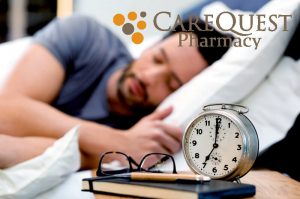Have you ever standing before a mirror and got an impression that you look older what you were yesterday? Maybe! Do you know it could be the fall out of not getting enough sleep?
Yes, in day-to-day life, everything from your eating habits to the stress levels affects your skin.
So, the key to gorgeous looks or vibrant complexion lies in identifying and stopping bad habits.
You must have heard or seen people complaining of not getting enough of sleep. Sleep is something that eludes many or people don’t make it seriously in their lives.
We’re so much obsessed with our professional and personal lives these days, going here and there, working long hours at night, or spending most of our time traveling without sleep etc.
How does sleep affect aging process?

When we‘re in sleep, our body works hard on repairing, regenerating and getting rid of toxins which we excrete in the bathroom or in form of sweat. Less sleep brings fewer repairs, resulting in less production of growth hormone.
This growth hormone works as a preventive to the aging process. Working long hours result in fatigue both mental and physical. That forces to have less sleep, hormonal cascade, and imbalance
Modern researchers have proven that those workaholics who have the tendency to stay up late and rise early if they continue to put the sleep on the backburner, they would speed up their aging process compared to the people who put a high price on the amount of sleep they need.
A recent study reveals that only one hour of less sleep can rise up your cholesterol level 10 times, leading to stress and an increase in blood sugar levels.
How much sleep does our skin need?
What could be the ideal amount of sleep a person needs to have? Generally speaking, 7 to 8 hours of sleep for teenagers and young people and 5 to 6 hours for middle-aged people are found to be perfect.
Setting alarm to wake up, that means you’re interrupting body’s natural cycle of sleep and it’s better to go to bed early and riser at your desired time.

Tips to take note of before going to sleep
- Don’t take drugs, alcohol or any type of caffeine.
- Take light dinner
- Stay away from evening workout.
- Integrate a stress management program to your daily life
- Cut down day-sleep, take a hot bath & drink warm milk.
